Advanced Business Writing
Course Overview

Documents such as Proposals, Reports, and agendas that are written well, easy to understand, and keep to the point are composed by people who have clarified their thoughts before writing. Make your letters effective by thinking before you write and always writing what you think.
We can argue that writing is a key method of communication for lots of people, and yet, it is considered as the one that most people struggle with. With the extensive business requirement in today’s business world for writing in English, a profound element in any business communication, employees are increasingly being obliged to enhance their English business writing skills in order to communicate with multi-cultural work environments.
Goal of Course:
This program will provide the participants with an overview of business writing concepts, stages, style that also cover basic spelling, grammar, and punctuation, as well as the most commonly used business documents such as proposals, reports, and agendas.
Generally in business writing, there are typical tenses used reliant on the type of document being written such as e-mails and letters, reports, proposals and other technical papers.
During this program, delegates will also be able to produce persuasive and coherent reports through organizing information and communicating powerful ideas that support decision-making.
The Business Writing Skills program links theory and research with practical applications (such as case study analyses), encouraging higher order thinking, peer engagement, interpersonal confidence, and develop delegates’ skills in producing a range of effective business documents.
This program is highly-interactive. Delegates will relate the skills learned during the course directly in producing their individual structured reports. The training is supported by a comprehensive manual covering all aspects of the writing methods and offering a list of resources for additional work.
Call Us At + 971 (4) 368 0915 or email us at info@l2s.net for further details or to discuss your requirements.
Training Objectives
- Acquire practical and business writing skills
- Use written communication skillfully in different business situations
- Understand business writing processes and practices in professional contexts
- Using information and data in the business written communication
- Produce written professional documents
- Adhere to a systematic business writing technique
- Composing E-mails, Letters, and other business documents
- Choosing the right words, statements, and writing patterns.
- Delivering a clear and concise message and eliminating unnecessary information resulting from extended writing
- Use data and visual aids as means of delivering the message
- Structure effective paragraphs and sentences
- Using basic English grammar, punctuation and vocabulary
- Skimming and scanning techniques
- Produce written letters and reports
Module Outlines
Module 1: EFFECTIVE BUSINESS COMMUNICATION
- Definition, characteristics, process, importance of business writing skills
- The three fundamentals of business writing
- Features of communication
- Evaluating writing
- Language – Use of correct grammars and vocabulary
Module 2: THE PROCESS OF BUSINESS COMMUNICATION
- Verbal & Nonverbal Communication
- Structuring a purpose statement
- Focusing on actions and objectives
- Understanding the reader
- Creating a clear message
- Putting your thoughts in order
- Process of preparing effective business messages, planning steps, basic organizational plans, beginnings and endings, composition of the message
Module 3: EFFECTIVE BUSINESS COMMUNICATION PRINCIPLES
- Forming clear paragraphs
- Managing sentences
- Using the right wordings
- Through styles: completeness, clarity, conciseness, correctness, concreteness, gestures
- considerations, manners: courtesy, and follow-up or feedback
Module 4: BUSINESS LETTERS & EMAILS
- Direct request, inquiries, claims and requests for adjustments
- Requests regarding routine business or public causes, invitations, orders, reservations, favorable replies
- Favorable messages, request, research result publication and escalations
Module 5: BUSINESS REPORT
- Meaning and classification of business reports
- Preparation before writing reports
- Main parts of the report, organization and outline of report body
- Short reports (suggestions for short report, informational memorandum reports, analytical memorandum)
- Reports with graphs
- Informational and analytical report
- Formal report
Customized Learning
Leap To Success is offering a variety of learning options to meet current realities and can be adapted to suit your business needs. These options include variants of online, blended and on-site course formats.
Face To Face Learning
Enabling you to have a face to face interactive and engaging learning experiences led by renowned industry experts and thought leaders with extensive practical experience who will employ a variety of interactive learning techniques, including short high-impact videos, case studies, assessments, role plays, in addition to on-going support.
Virtual Learning Labs
Interactive online learning held in real-time using Zoom and are led by international subject matter experts who incorporate case studies, breakout rooms, guided practice, simulations and discussions to maximise your learning experience.
General Methodology
Similar to any L2S training program, this program offers an interactive learning experience in which will allow the delegates to reflect on their learning through an informative, indulging, and fun classroom experience. The design of the training session focuses on the following attributes.
Concrete Experience: The delegates will learn by doing
Reflective Observation: Reflecting on the newly experienced skill-set
Abstract Conceptualization: Developing deeper understanding to the learned concepts
Active Experimentation: Providing the delegates with realistic tools that can be tested in the real life
Specific Methodology
To effectively execute this program and to ensure that the end result is being achieved, L2S specific training methodology in Effective Business Writing Skills program is as explained in the below stages:
Stage 1: Designing the Training Event
During this stage L2S will be assessing the learning needs from the determined objectives, and simultaneously considering practicality. In addition, the Program Manager will arrange for a meeting with the Training Department or Stakeholders, to better understand their specific needs and the behavior of their teams participating in the program. The objective of the meeting is to capture the following:
- Get more insights regarding the corporate culture
- Identify the client’s needs in business writing and the writing methodology that they wish to implement with their various teams.
- Identify the client’s specific problems that they wish to address in the customized program.
Before attending to the training program, all team participants will undergo an evaluation. The evaluation includes filling a customized multiple-choice questionnaire that identifies each participant’s gaps that need improvement. Nevertheless, the evaluation will tackle the following areas:
- Written Communication Skills Current Style
- Attitude (to assess the wording they use)
- Self Confidence (to enhance how participants communicate with their senior management)
- Self-Organization (to influence an orderly thought process)
- Procrastination and Time Management (to reduce postponement and influence their timely writing of emails and reports)
- Selling Your Thoughts to Others (to influence that they get their message across in a way that can be accepted how the message is being delivered to the reader)
- Identifying the Problem in the message and addressing it with proposed action steps.
Stage 2: During the training
- The course design is based on interactive facilitation, training games, training videos, role-plays, group discussions, and group brainstorming. Throughout this workshop, we will be monitoring their level of absorption of the education, and accordingly either more of their interaction or more education is allowed for. This includes an Interim Written Test. Each participant will then read out loud his message and we address their individual development requirements. This Step will be conducted over 2 days.
- During the training program, participants will be able to reflect on their Pre-Assessment results and adhere to the below fundamental requirements of business writing:
Identifying (Pre-Writing)
- the subject of the message
- who needs to receive the message
- the facts and the needs
- the problem and the proposed action steps
- the implications of the message
- The best structure for your message
Writing the Message
- Converting your thoughts to a written message
- Language – using the basics if not proficient
- Review and edit the message before sending
- Deciding how to best send your message
Stage 3: Post the Training
All participants will undergo the same evaluation that they underwent in stage 1. They again fill the same customized multiple-choice questionnaire that they filled earlier. We then compare pre- vs. post- to identify the improvement change:
- Per participant
- Per department
- Per all participants from company.
One week after the program is concluded, we communicate with your Training Department or the participants’ direct managers (if possible) to ask about their real-life performance in business writing.
Evaluation: 2 weeks post the training event, L2S Program Manager will ask of the participants to present a sample report in order to measure and provide feedback (all communication will be through your Training Department). If there are still needs for improvement, then L2S Program Manager will conduct a 2-hour session for the delegates Participants to give feedback and provide a fine-tuning of the lagging indicators and findings.
Activities Brief
Writing skills is a foundation skill although it tends to be overlooked in favor of more technical skills, it nevertheless represents a key component of every day work activity. The ground rules are common to all types of writing and similar structures will apply for other types of report. Duration 2 hours
You’ve Got Mail
This training activity is intended for use by trainers to increase participants’ letter writing skills giving them the ability to write effective letters. Duration 45 Minutes
Mirror Writing
This training resource is intended for use by trainers to show how something seemingly simple, such as a new work task, can prove almost impossible until new strategies are practiced, learned and adopted. Duration 45 Minutes
Dealing positively with written complaints
This training resource is intended for use by trainers with all members of staff responsible for dealing with written complaints and those who would potentially respond in writing to a verbal complaint.
Assessments
Delegates will undertake the following assessments during the training
- Report Writing feedback
- Personal Writing Style
Sign Up For the Course
